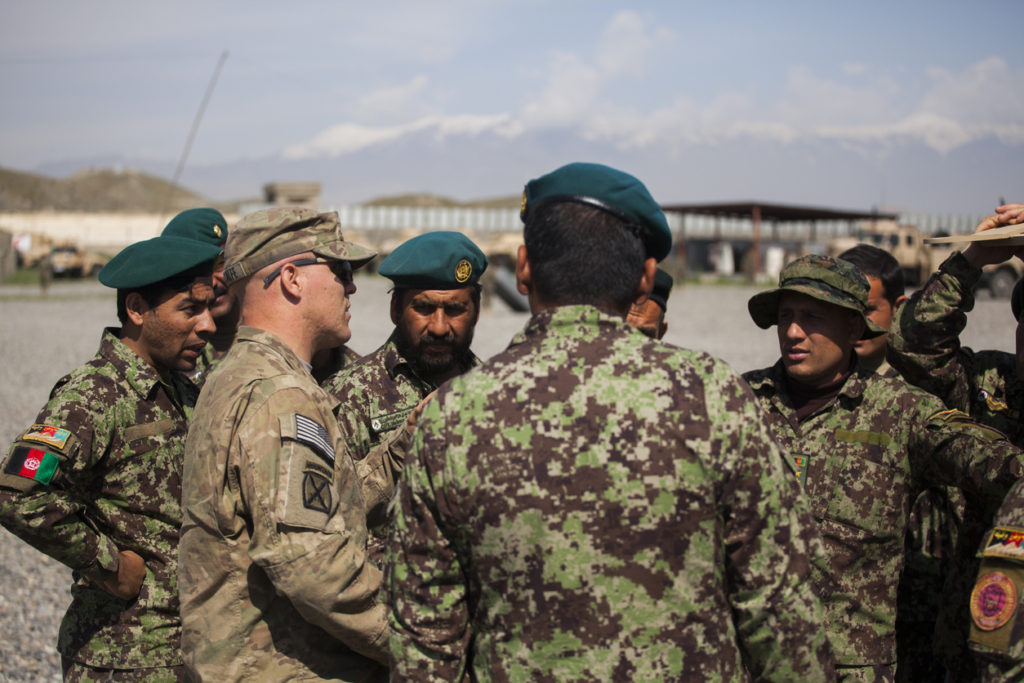Marc Simms is an occasional blogger for Proelium Law LLP. Marc holds a MLitt in Terrorism Studies and a Masters in International Relations, both from St Andrews. His particular interests are in emerging international security issues, unconventional warfare and terrorism.
In a statement before the Senate Armed Services Committee on February 9th this year General John W. Nicholson, the commander of Resolute Support Mission in Afghanistan, testified that Russia was supporting the Taliban, having “become more assertive over the past year, overtly lending legitimacy to the Taliban to undermine NATO efforts and bolster belligerents using the false narrative that only the Taliban are fighting ISIL-K.”
Supporting Claims
Since then General Curtis Scaparrotti, the NATO Supreme Allied Commander in Europe, also testified before the SASC in March stating that there has been noticeable Russian support, “increased influence in terms of association and perhaps even supply to the Taliban.” In April, General Nicholson reaffirmed his earlier comments and stated that “we continue to get reports of assistance” and implied that Russia had armed the Taliban, a comment which was confirmed by an anonymous senior military official.
In July, two videos were passed onto CNN which lent weight to these accusations. The first showed a cache of weapons that had been captured by a Taliban splinter group from regular Taliban forces, which they say were supplied by Russian government sources via Iran (which has also been accused of covertly supporting the Taliban0. The second video shows weapons that a Taliban fighter claims were supplied for free by Russians in neighbouring Tajikistan. Afghan government spokesman Sediq Sediqi has confirmed that Afghan intelligence agencies are investigating the allegations of support.
Russia denies supporting the Taliban movement.
Russian ambassador to Afghanistan Alexander Mantytskiy stated: “We do not provide any assistance to the Taliban”.
Russian motivations and aims in supporting the Taliban
Russia likely has several reasons for arming the Taliban, if the above allegations are correct.
Firstly, it is quite likely that Russia is arming the Taliban as a way to combat ISIS in Afghanistan. Conflict between the two groups has kept ISIS’s spread in the country limited, and so has prevented it from emerging from the border region of Pakistan to become a greater threat to other Central Asian republics, where Russia has significant strategic interests. Tajikistan has already been highlighted by Global Risk Insights of becoming a “terrorist hotspot”, and a Kazakh national guard base was raided by gunmen with ISIS sympathies last year.
Continued Russian contact with the Taliban also allows it to keep tabs on affiliated groups fighting under the Taliban’s banner, many of whom come from Central Asian republics and whose activities are of significant interest to their own governments. Groups such as the Islamic Movement of Uzbekistan (both the ISIS and Taliban affiliated factions), the Turkistan Islamic Party and Imam Bukhari Jamaat could form a significant returning foreign fighter problem, and thus are worth monitoring.
Support for the Taliban can also improve Russia’s diplomatic posture with the Afghan government. While Russia is unlikely to ever admit material support to the Taliban, that it seemingly does means that the Afghan government is a difficult position regarding any future negotiations with the Russian state.
Finally, Russia has long seen the United States as its geopolitical adversary, regardless of the policies the United States may be pursuing. As such, it believes that the US is predisposed to act against Russian interests, and that in this zero-sum conflict, weakening America, or its overseas allies, is of benefit to the Russian state’s interests.
Through engaging in “hybrid diplomacy” in Afghanistan, the Russian government continues to exert global influence on the cheap. However, such support will have negative outcomes for the security of the region, given the current strength of the Taliban and the Afghan government ineffectiveness in combatting it.
Need advice?
If you’d like further information, or to discuss working with us, please get in touch






